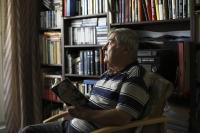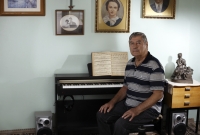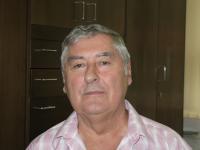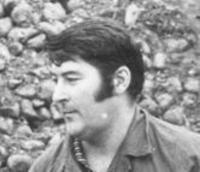Women who worked in factories were indoctrinated and they shouted at us, “Hang them!”
Václav Jozefy was the stepson of a well-known bibliophile, cultural patron, and municipal librarian of the town Litomyšl Josef Portman as of 1948. In 1944, he entered the first class of Litomyšl’s grammar school where he studied until May of 1950. He was one of the best students. During this time, he sympathized with the “Scouting Movement,” although he never actually joined a Scout organization. In 1949, however, he joined a student group called “Hvězda” (Star) at age 16. Under the direction of a fellow student, Miroslav Kohout, the objective of this group was to resist the activities and pressure of the newly established Czechoslovak Youth Association. Jozefy was responsible for making a list of students who had resisted signing membership into the Czechoslovak Youth Association who could support non-Communist candidates to the School Board of the Czechoslovak Youth Association in the following elections. The group was not able to exert any major influence, however, because Miroslav Kohout was arrested during an unrelated incident just before the summer of 1949. Václav Jozefy attended school for one more year to follow before he was expelled for his discovered involvement in a fabricated political trial against rector Stříteský and other grammar school students. After spending the summer working in a sugar refinery in Cerekvice, Jozefy and 25 others were arrest on September 26th, 1950 and taken to court. The State Court sentenced him to six months of imprisonment for what it deemed to be “grouping against the state.” Jozefy served his prison sentence in the Institute for Juvenile Delinquents in Zámrsk. Josef Portman, Václav’s stepfather, was absent from the court hearing because of his alleged health problems, but in fact he saw the actions of his stepson as a discredit of his own name and consequently renounced him. Afterwards, Václav Portman took the name of his departed father - Jozefy. Václav Jozefy was musically gifted and began playing the piano at age five. After he entered the army in 1956, he won the army music competition. This finally allowed him to gain back his status as a second-rate citizen and was permitted to study again after a previous eleven failed attempts to do so. In the years 1958-1960 he managed to graduate from grammar school and continue his studies at the Chemical-Technological University in Pardubice. With his new engineer degree, he became a manager in the food and sugar industry.





